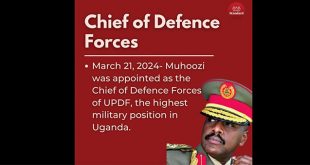
Kampala, Uganda | THE INDEPENDENT | There are mixed feelings amongst scientists over complaints from some doctors about the duration of training heart disease specialists, saying that it is too long and pushing away many from specializing in cardiology.
Speaking at a meeting attended by experts in heart disease from a number of countries across the world, Dr. Johnson Kansiime, the clinical lead at St Mary’s Lacor Hospital said with less than twenty adult cardiologists in a country of about forty-five million people, there is need to address issues in the curriculum that makes it less accessible to doctors progressing in their studies.
Kansiime for instance, says cardiology training is too long taking a doctor up to twelve years of training to become a specialist, arguing that by the time they complete, some of them are nearly retiring from public service. However, Dr. Emmy Okello, the President of the Uganda Heart Association says that reducing the duration of training is not appropriate and can affect the kind of specialists produced.
Of the three years of super specialist training, the doctor explains that two are spent on understanding diagnostics and treatments and that it’s in the third year that they introduce complicated procedures such as unblocking blocked arteries from a heart attack and inserting pacemakers.
Until recently, there was no formal training for cardiologists in the entire East African region pushing students to go to India and the west for training. But Dr. John Omagino, the Executive Director of Uganda Heart Institute (UHI), says that they have now started a fellowship program and have twenty-six specialists training in adult and pediatric cardiology in addition to cardiac surgery.
Like Okello, Omagino says other than reducing training years, the government should offer scholarships to doctors to solve the problem of numbers.
On her part, Prof Sarah Kiguli, an official from the Uganda Medical and Dental Practitioners Council (UMDPC), says that the medical council had no mandate to oversee sub-specialists like cardiology but developed guidelines four years ago.
Kiguli reveals that according to the harmonized guidelines for sub-specialty training for the region, a cardiologist is recognized as one if they have attained a minimum of twelve years of training.
At the meeting however, Prof Karen Sliwa, a South African-based cardiologist revealed that while other countries have developed specific treatment guidelines for cardiovascular disease that most suit how patients there present with the disease, Africa has none.
She says the continent has to depend on general guidelines, which in some cases may not apply to a specific case one is handling. Every year, scientists come together to review the practice of cardiology and check whether there are advances in diagnostics, treatments, and how the disease manifests.
According to Dr. Okello, who is also a consultant cardiologist, this year they are focusing largely on what the COVID-19 pandemic taught globally, saying that the area of heart health was greatly affected.
In addition, he says they are assessing cardiology training to address any gaps that they will brainstorm on. Currently, one in every four adult Ugandans is at risk of heart disease.
When it comes to children, Omagino says apart from those born with congenital birth defects of the heart, they are increasingly seeing children presenting with symptoms that predispose them to heart disease.
*****
URN
 The Independent Uganda: You get the Truth we Pay the Price
The Independent Uganda: You get the Truth we Pay the Price


